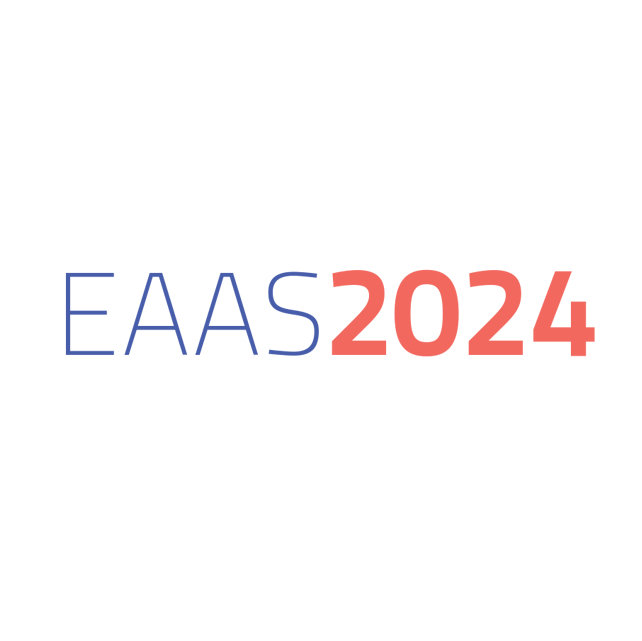1924-2024: The American Immigrant Narrative Revisited
It has become a longstanding cliché, albeit highly controversial, to note that the U.S. is – and always has been – a nation of immigrants. Oscar Handlin, among others, famously remarked that to write the history of America was to write the history of immigrants. This history – or, to be precise: these histories – have throughout been marked by extreme inequalities for groups of various origins, yet the Immigration Act of 1924 (the Johnson-Reed Act) sticks out as one major paradigm shift in the larger course of events. One hundred years ago, this piece of legislation drastically limited the number of immigrants allowed to come to the U.S. each year through a national quota system and completely excluded Asians from immigrating to the U.S. The aim of this law, flanked by ethnonationalist mobilization, was to supposedly preserve the ethnic (i.e. largely/majority white) composition of American society. It is the exclusionary agenda of this Act that has again been hotly debated during the Trump-Presidency, which saw the return of ethnonationalist arguments with a vengeance, the questioning of birthright citizenship for second-generation immigrants, and the chiseling away at the immigrant narrative as quintessential American narrative (cf. Jared Goldstein).
Other forms of exclusion appear to be part and parcel of the immigrant narrative in its classic version. After all, the history of immigration feeds into the violent history of discrimination, marginalization, and exploitation not only with regard to those who were welcome and allowed to come and those who were not, but also with regard to those who were already there or those who were forced, as enslaved people. For a long time, histories of immigration to the U.S. have suppressed histories of Indigenous communities. The conference aims to highlight these histories and discuss them in relation to settler colonialism. We are also interested in presentations that explore the topics of Indigenous survivance, heritage and legacy that prevail today despite forced migrations and oppression of Indigenous peoples. Furthermore, as Toni Morrison once wrote, it was “on the back of blacks” that the immigrant dream of upward mobility was realized. Similar arguments have been brought forward regarding the interaction of immigrants to the U.S. with other groups and among different groups of immigrants (cf. Noel Ignatiev, Matthew Frye Jacobsen). To assess the ambivalent legacies of the American immigrant narrative, this conference calls for an intersectional approach to the topic which also examines gendered regimes of immigration, the precarious labor conditions of (im)migrant workers, class restrictions, and sexual exploitation, past and present. Certainly, the very ideal of American citizenship has evolved by othering those who do not belong, the so-called aliens, refugees, illegal immigrants, and non-citizens (cf. Lisa Lowe), and it has also been predicated on and tied to certain norms of family and community the adherence to which was supposed to grant access by assimilation (for instance, under the arc of the “model minority”-myth).
The immigrant figures prominently in the cultural imaginary of the nation, and the topic of immigration has, for obvious reasons, always had a transnational reach. Immigrants are often placed at the center of cultural scripts that favor a dramatic quest, for instance in that formula that is still a crucial one in popular culture: the Western. Here, they are depicted as agents seeking a new life, but also as agents of human destruction and ecological disaster. In a broad range of literary texts, the immigrant presence has been reconceptualized over the years, questioning its geographical telos alongside notions of success and failure and other dimensions of immigrant subjecthood and asking for a more nuanced reading of the immigrant figure as neither only perpetrator (complicit with nation/empire-building schemes) nor simply victim caught in the scheming of others (people and institutions).
The EAAS-conference 2024 seeks to engage with the complicated histories that have shaped the American immigrant narrative in all of its variations across time and from different disciplinary angles, and it welcomes contributions that critically interrogate its historical trajectories, political conundrums, regional manifestations, and myriad cultural representations.
Photo: Logo of the EAAS Conference 2024
Submissions
The submission phase has ended on September 15, 2023. We invited scholars interested in exploring these topics to submit their proposals for individual papers or full panels. Notifications of acceptance were sent out by November 15, 2023.
To attend the conference, all participants – whether or not they are presenting a paper – need to register via our conference management system ConfTool.
Contact

Dr. Christoph Straub
Referent Bayerische Amerika-Akademie
E-Mail
eaas2024@amerikahaus.de
Telefon
089 55 25 37-42








